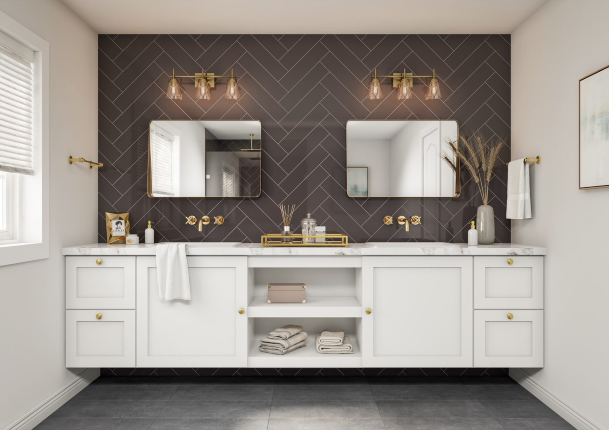
Does Porcelain Get Hot?
Just like stone or cement pavers, porcelain tiles can get hot if they’re in direct sunlight. That doesn’t mean the material shouldn’t be used outside. In fact, porcelain is one of the most popular materials for outdoor tiles! The issue has less to do with the material you choose than it does with the color. The darker the tile, the more it absorbs heat. This is expressed with the Solar Reflexivity Index (SRI). Because darker colors absorb heat, they have a low SRI. Light colors like cream or gray have a high SRI. They reflect more of the heat, which makes them ideal for areas that come under direct sunlight.How to Mitigate the Heat
Plenty of home and property owners choose to use dark tile in areas that come under direct sunlight. In these situations, there are a few different methods you can use to mitigate the heat. For instance, it can be a nice touch to spray the tile with water to cool it. Alternatively, some homeowners have a patio misting system that cools the outdoor tile for them. Regardless of the solution you choose to keep your porcelain cool, just being aware is typically enough to avoid burning your feet.Where Should You Place the Porcelain Tile?
Porcelain tile can be used in a variety of outdoor areas, including but not limited to:- Patio
- Balcony
- Outdoor Kitchen
- Pool Deck
- Walkways



